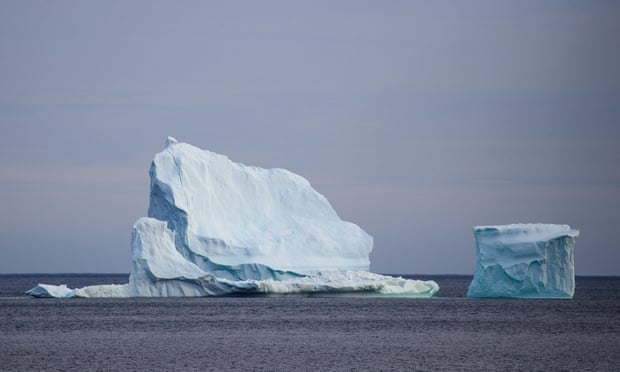Enormous glaciers in Greenland are depositing ever larger chunks of ice into the Atlantic ocean, where it melts. But scientists have found that the largest ice loss in the decade from 2003 actually occurred in the southwest region of the island, which is largely glacier-free.
This suggests surface ice is simply melting as global temperatures rise, causing gushing rivers of meltwater to flow into the ocean and push up sea levels. South-west Greenland, not previously thought of as a source of woe for coastal cities, is set to “become a major future contributor to sea level rise,” the research states.
“We knew we had one big problem with increasing rates of ice discharge by some large outlet glaciers,” said Michael Bevis, lead author of the paper and a professor of geodynamics at Ohio State University. “But now we recognize a second serious problem: increasingly, large amounts of ice mass are going to leave as meltwater, as rivers that flow into the sea.”
The research provides fresh evidence of the dangers posed to vulnerable coastal places as diverse as Miami, Shanghai, Bangladesh and various Pacific islands as climate change shrinks the world’s land-based ice.
“The only thing we can do is adapt and mitigate further global warming – it’s too late for there to be no effect,” Bevis said. “This is going to cause additional sea level rise. We are watching the ice sheet hit a tipping point.
“We’re going to see faster and faster sea level rise for the foreseeable future. Once you hit that tipping point, the only question is: How severe does it get?”
The study, published in Proceedings of the National Academy of Sciences, used data from Nasa’s gravity recovery and climate experiment (known as Grace) and GPS stations scattered across Greenland to analyze changes in ice mass.
This showed that Greenland lost around 280bn tons of ice per year between 2002 and 2016, enough to raise the worldwide sea level by 0.03 inches annually. If all of Greenland’s vast ice sheet, 3km thick in places, was to melt, global sea levels would rise by seven meters, or more than 20ft, drowning most coastal settlements.
The rate of loss hasn’t been even, however, with the ice melting four times faster in 2013 compared to 2003. Researchers said this was driven by rising global temperatures from human-induced climate change as well as the North Atlantic Oscillation, a periodic weather phenomenon that brings warmer air to western Greenland.
The fate of Greenland’s huge glaciers in the south-east and north-west has long been viewed as a key factor in global sea level rise but the Ohio State-led research suggests the ice fields of the island’s southwest may prove an unexpectedly large source of meltwater.
Scientists have been gaining a greater understanding of how the two massive ice masses on the planet, in Greenland and Antarctica, are reacting to a warming ocean and atmosphere.
Arctic ice loss has tripled since the 1980s, with melting in places such as Greenland and Alaska providing the greatest instigator of sea level rise while destabilizing the very ground underneath four million people’s feet.
Antarctica is becoming an increasing concern, however, with ice vanishing at its fastest rate in recorded history. The world’s largest expanse of ice is now losing around 219bn tonnes of ice a year, a trajectory that would contribute more than 25cm to total global sea level rise by 2070. Should the entire west Antarctic ice sheet collapse, sea levels would balloon by around 3.5m, albeit over a lengthy timeframe.
“We are warming the planet, this is melting ice, and that is raising sea level,” said Richard Alley, a geologist and glacier expert at Pennsylvania State University. Alley added that while there are uncertainties over future sea level rise “if the big ice sheets change more rapidly than expected, they could drive faster or much faster rise than expected”.
Guardian
More about: #Greenland
















































